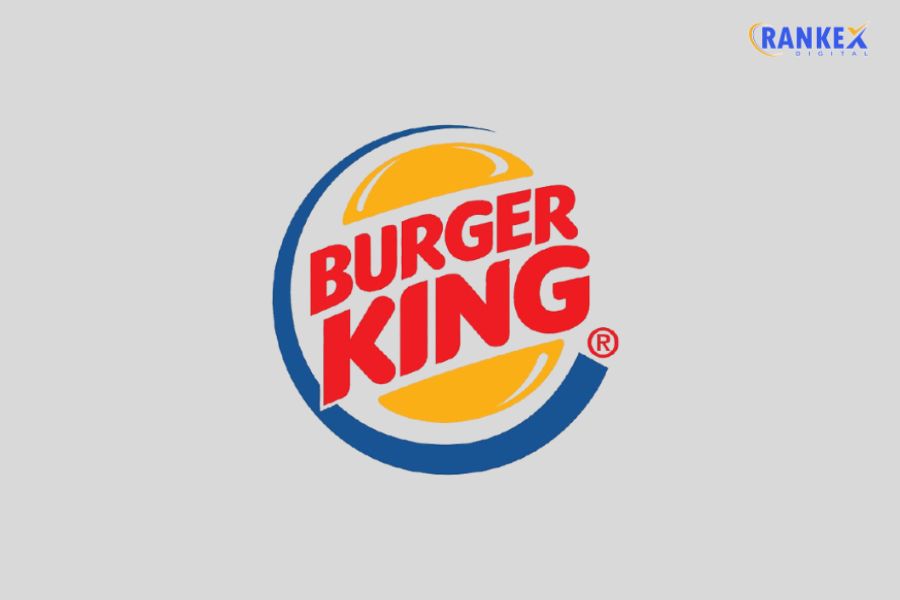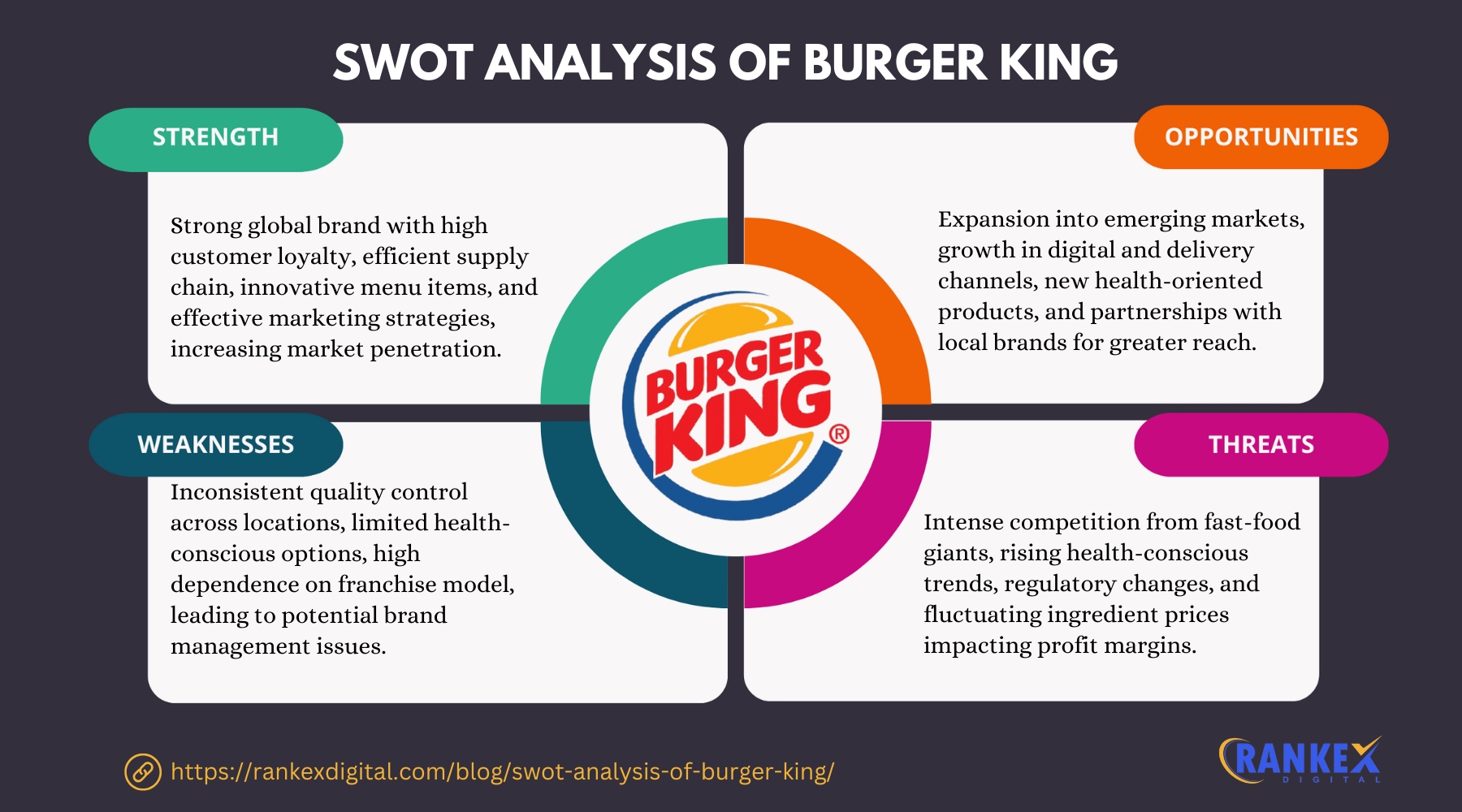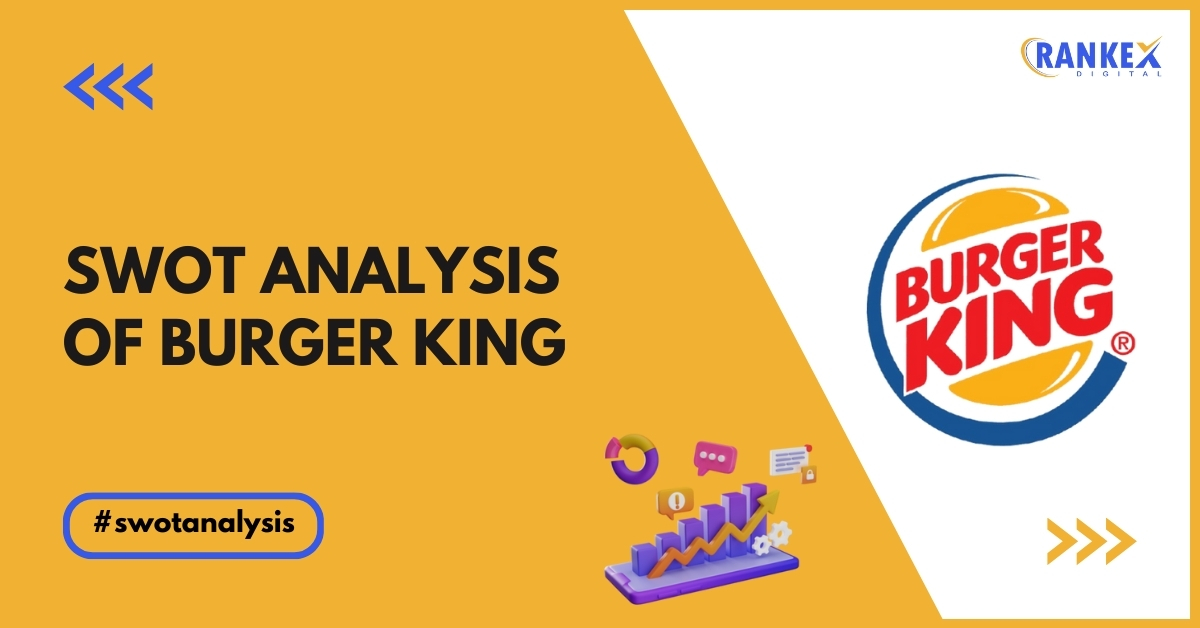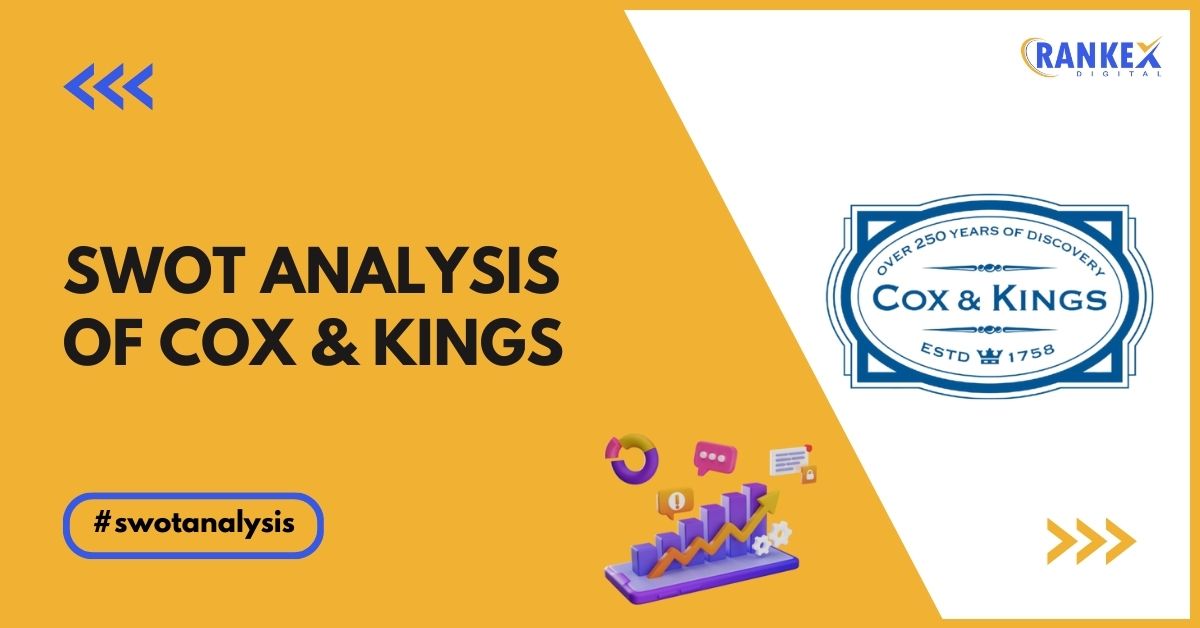Burger King, one of the world’s largest fast-food chains, has been serving customers worldwide with its iconic flame-grilled burgers for decades.
Established in 1954, Burger King has maintained a strong position in the fast-food industry, competing with giants like McDonald’s and Wendy’s.
A SWOT analysis of Burger King provides insights into its current strengths, weaknesses, opportunities, and threats, enabling a better understanding of the company’s strategic position in a highly competitive market.
In this blog
Overview of Burger King

Founded in Miami, Florida, in 1954, Burger King has grown into a global brand with thousands of outlets in over 100 countries.
The company is known for its flame-grilled Whopper, a flagship product that sets it apart from its competitors. Burger King’s focus on innovation, customer convenience, and global reach has contributed significantly to its brand success.
Quick Stats About Burger King
| Founders | James McLamore and David Edgerton |
|---|---|
| Year Founded | 1954 |
| Origin | Miami, Florida, USA |
| No. of Employees | 34,000+ |
| CEO | Joshua Kobza |
| Company Type | Private |
| Market Presence | Over 100 Countries |
| Annual Revenue | $10 Billion |
Recent News about Burger King
- Menu Innovation: Burger King has introduced plant-based and meat-alternative menu items to cater to the growing demand for healthy and sustainable food options.
- Digital Transformation: The company has invested in digital ordering platforms, loyalty programs, and mobile apps to enhance customer experience.
- Sustainability Initiatives: Burger King has launched initiatives to reduce waste, improve sourcing practices, and implement sustainable packaging.
- Global Expansion: Burger King has expanded aggressively in international markets, particularly in Asia and Latin America.
SWOT Analysis of Burger King

Strengths of Burger King
- Strong Brand Recognition: Burger King, often referred to as BK, is a household name globally, well-known for its signature Whopper burger and flame-grilled offerings. The brand has built a legacy in the fast-food industry over decades, which gives it a significant advantage in customer recall and trust. Customers around the world are familiar with the brand’s unique taste and experience, helping Burger King to stay competitive.
- Global Presence: With over 19,000 outlets in countries across the globe, Burger King has a widespread footprint. Its presence in both developed and emerging markets provides diversification, allowing it to capture different demographics and adapt to various regional preferences. This global scale also strengthens its resilience to economic downturns in individual regions.
- Innovative Menu: Burger King consistently adds new and trendy items to its menu to attract diverse customer segments. Recently, it introduced plant-based options like the Impossible Whopper, appealing to the growing number of health-conscious and vegetarian consumers. Such innovations make Burger King adaptable and appealing in a market with rapidly changing food preferences.
- Effective Advertising: Burger King is known for its creative and bold advertising campaigns that resonate well with customers. Campaigns like the “Moldy Whopper” (highlighting the removal of artificial preservatives) or “Whopper Detour” (where customers were encouraged to order from Burger King by using the McDonald’s app) have been memorable. This sharp advertising edge helps reinforce its brand identity and differentiate it from competitors.
- Operational Efficiency: Burger King’s franchise-based model allows the company to scale rapidly while keeping operational costs lower. The franchisees carry the cost and risk associated with expansion, enabling the brand to maintain a lean operational structure. This model also allows Burger King to generate revenue while franchisees invest locally, making it easier to penetrate new markets and grow.
Weaknesses of Burger King
- Reliance on Franchisees: Although the franchise model offers many benefits, it also means that Burger King has limited control over daily operations in franchise-owned stores. Maintaining consistent quality and service standards across thousands of franchises can be challenging, potentially leading to inconsistent customer experiences that could harm the brand.
- Limited Product Diversity: Burger King is known for its burgers, especially the Whopper, but this focus can be limiting. Unlike competitors who offer a wider variety of items, Burger King’s burger-heavy menu may struggle to attract customers looking for a broader selection, including lighter or healthier meal options.
- Pricing Strategy: Some of Burger King’s items are priced at a premium compared to similar products from competitors. In cost-sensitive markets or economic downturns, this pricing can make it difficult for Burger King to retain customers, especially when there are more affordable alternatives.
- High-Calorie Menu Options: Many of Burger King’s offerings are high in calories, which may deter customers who prioritize health-conscious choices. With increasing awareness around health and nutrition, this could drive some customers to healthier competitors unless Burger King actively adapts its menu to include more balanced options.
- Slower Adaptation to Market Trends: Burger King has historically been slower to incorporate healthier options or to offer low-calorie, organic choices compared to competitors. This hesitancy can make it harder for the brand to appeal to the modern consumer who is more health-aware and might view Burger King as less committed to healthier eating.
Opportunities for Burger King
- Growing Demand for Healthier Options: There is an increasing consumer trend towards healthier eating, and Burger King has the opportunity to meet this demand by expanding its offerings with more plant-based, low-calorie, and organic options. This not only attracts health-conscious customers but also gives the brand an edge in sustainability-focused markets.
- Digital Transformation: The digital shift in consumer behavior opens opportunities for Burger King to enhance its customer experience. Investing in mobile apps, online ordering, delivery partnerships, and loyalty programs can improve customer convenience and engagement, helping Burger King capture the tech-savvy, on-the-go demographic.
- Expanding International Markets: Emerging markets in regions like Asia, Africa, and Latin America offer significant growth potential. With rising incomes and urbanization, these areas present opportunities for Burger King to grow its presence and reach new customers, especially through its franchise model, which facilitates local adaptation and growth.
- Innovation in Sustainability: With more consumers caring about eco-friendly brands, Burger King can capitalize on sustainable practices such as eco-friendly packaging, reducing plastic use, and adopting waste reduction measures. By enhancing its environmental responsibility, Burger King can attract customers who prioritize sustainability.
- Menu Diversification: By introducing more diverse food items beyond burgers, Burger King can appeal to a broader audience. Adding popular food types like salads, wraps, and bowls can help attract customers who are looking for variety, boosting its competitiveness in the fast-food industry.
Threats to Burger King
- Intense Competition: The fast-food industry is highly competitive, with well-established brands like McDonald’s, Wendy’s, and KFC constantly vying for market share. This competition limits Burger King’s ability to capture a larger share of the market, as these competitors continuously innovate and improve their offerings.
- Changing Consumer Preferences: As more consumers shift towards healthier, organic, and plant-based foods, Burger King’s traditional, calorie-heavy options may become less appealing. If Burger King is unable to keep pace with these changing preferences, it risks losing customers to competitors that offer healthier alternatives.
- Economic Downturns: During economic recessions or slowdowns, consumers often cut back on non-essential spending, including dining out. As a result, Burger King’s sales could be impacted, especially in regions experiencing economic difficulties, as people opt for home-cooked meals or cheaper dining options.
- Health and Nutrition Concerns: The public is increasingly aware of health risks associated with fast food, and Burger King’s high-calorie items could deter health-conscious consumers. Additionally, regulatory changes related to health and nutrition labeling could further impact how the public perceives Burger King’s food quality.
- Supply Chain Disruptions: As a global brand, Burger King depends on a vast supply chain, which can be vulnerable to disruptions caused by events like natural disasters, political instability, or pandemics. These disruptions could lead to increased operational costs or even result in product shortages, potentially affecting the brand’s reputation and financial performance.
Top Competitors of Burger King
- McDonald’s
- Wendy’s
- KFC
- Subway
- Taco Bell
Conclusion
The SWOT analysis of Burger King highlights its strong brand recognition, global reach, and menu innovation as key strengths. However, challenges like reliance on franchisees, limited menu variety, and high-calorie options present obstacles.
Opportunities for Burger King include expanding digital services, entering new international markets, and focusing on sustainability and healthier menu items. The company also faces significant threats from competitors, changing consumer preferences, and economic fluctuations.
By leveraging its strengths and seizing growth opportunities while addressing its weaknesses, Burger King can continue to strengthen its market position in the fast-food industry.
Frequently Asked Questions
What is Burger King’s biggest strength?
Burger King’s biggest strength lies in its brand recognition and global presence, with over 19,000 locations in over 100 countries.
Why is digital transformation important for Burger King?
Digital transformation helps Burger King improve customer experience, streamline ordering and delivery services, and enhance customer engagement through loyalty programs and apps.
What are some opportunities for Burger King in emerging markets?
Burger King has significant growth potential in emerging markets like Asia and Latin America, where demand for Western fast-food options is on the rise.
How does Burger King’s reliance on franchisees impact its business?
Reliance on franchisees allows for rapid expansion and operational efficiency but can make quality control and consistent customer experience more challenging.
What are Burger King’s main threats in the fast-food industry?
Burger King faces threats from intense competition, shifting consumer preferences toward healthier options, economic downturns, and potential supply chain disruptions.











